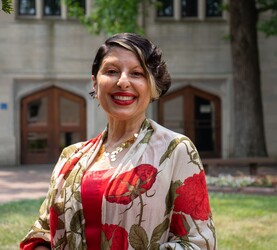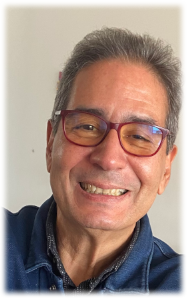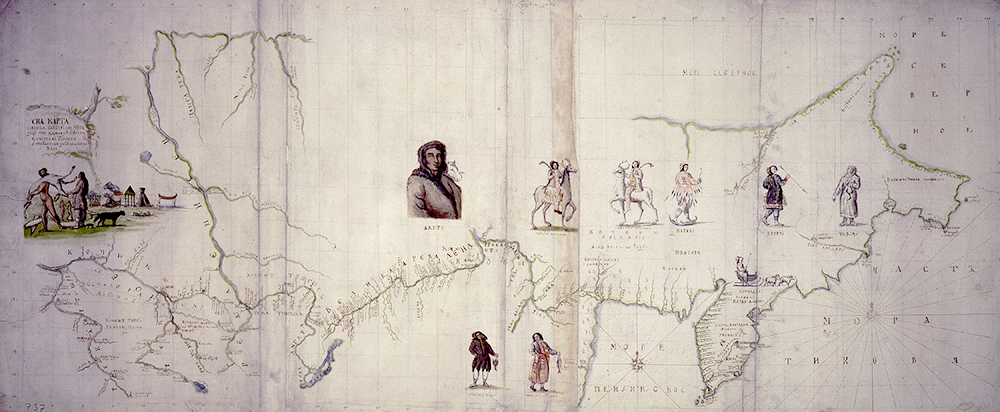Doing Histories, Imagining Futures
First International Conference of the Histories of
Anthropologies
4-7 December 2023, on-line
Scroll down to conference programme to see the panel and keynote recordings.
In the last decades, interest in the histories of anthropology in Europe and worldwide has expanded steadily in terms of numbers of scholars, publications, and research activities, moving from the margins to the center of discussions about anthropological practice within the discipline. Today, contemporary anthropological theory and practice pose a challenge to historians of anthropology about their actual and prospective roles in studying, practising and structuring the discipline.
Against this backdrop, the key stakeholders in the field of the histories of anthropology have decided to collaboratively organise a conference in order to discuss the methodological and theoretical, pedagogical, and ethical aspects of the histories of anthropologies as a step toward sustainable capacity building for the global community of historians of anthropologies.
The First International Conference of the Histories of Anthropologies, “Doing Histories, Imagining Futures”, will be hosted on-line between 4-7 December 2023. As the first event of this kind, the conference will allow historians of anthropologies from around the world to meet with one another, share their personal and disciplinary experiences, and enhance their ability to address current debates in anthropology.
The conference will provide participants with an open and friendly environment to discuss the state of the art in the histories of anthropologies and closely examine theories, methodologies, and teaching approaches as well as to discuss the ethical contributions of our research to current and future anthropological practices. As global historians of anthropologies, we aim to foster ethical relationships among anthropologists, encourage wider participation of scholars from the Global South, and support the research of emerging scholars.
Stakeholders:
Anthropology’s Ancestors (Berghahn Series)
BEROSE International Encyclopaedia of the Histories of Anthropology
Critical Studies in the History of Anthropology (University of Nebraska Press)
HACA – Historical Approaches to Cultural Analysis Working Group (SIEF)
HAR – History of Anthropology Review
Histories of Anthropology Annual (University of Nebraska Press)
History of Anthropology Working Group (CHSTM)
History of Anthropology Working Group (DGSKA)
HOAIG – History of Anthropology Interest Group (AAA)
HOAN – History of Anthropology Network (EASA)
RAI – The Royal Anthropological Institute
Scientific Committee:
Grant Arndt, Iowa State University – USA
Nicholas Barron, University of Nevada – USA
Hande Birkalan-Gedik, Goethe University, Frankfurt – Germany
Aleksandar Boskovic, Institute of Archaeology, Belgrade – Serbia
Frederico Delgado Rosa, Nova University of Lisbon – Portugal
Fabiana Dimpflmeier, Gabriele d’Annunzio University of Chieti-Pescara – Italy
Katja Geisenhainer, Frobenius-Institut, Frankfurt, Germany and University of Vienna –
Austria
Katre Kikas, Estonian Literary Museum – Estonia
Christine Lauriére, EHESS – France
Gustavo Lins Ribeiro, Universidad Autónoma Metropolitana – Mexico
Robert Oppenheim, University of Texas at Austin – USA
Peter Rohrbacher, University of Vienna and Austrian Academy of Science – Austria
David Shankland, University of Bristol and UCL – United Kingdom
John Tresch, The Warburg Institute – United Kingdom
Honorary Committee
Regna Darnell, University of Ottawa – Canada
Ulf Hannerz, Stockholm University – Sweden
Sandra Puccini, Università della Tuscia – Italy
Han Vermeulen, Max Planck Institute for Social Anthropology – Germany
Organising Committee
Fabiana Dimpflmeier, Gabriele d’Annunzio University of Chieti-Pescara – Italy
Hande Birkalan-Gedik, Goethe University, Frankfurt – Germany
Fabio Dei, University of Pisa – Italy
Polo 4 SIA, University of Pisa – Ital
Keynotes and Roundtable
➤Keynote: Embedded and Engaged: Framing Ethnographic Futures in
Inhabited Pasts
Contemporary approaches to ethnography span a myriad of ideological and methodological frameworks that include questions of materiality, temporality, and relationality. Rooted in epistemologies from Afro-Caribbean religious and cultural work, as well as engagements in archives of ritual activities, this keynote lecture interrogates how anthropological collaborations with communities and objects of study are deeply engaged with inhabited pasts. In consultation with the works of Lydia Cabrera, Édouard Glissant, and practitioners and rites of Afro-Cuban religions, this exploration of ethnographic futures is resonant with the understanding of anthropology as a “discipline of contingency,” following Martin Holbraad (2019). By focusing on intensely non-universal understandings of relationality, we can begin to interact with collaborators, more-than-human actors, and archival remains as vital inflection points with which we can think with through activation. This presentation specifically looks at how creative and academic practices of ancestoring embody the materialization of memory through ethnographic performances like witnessing, writing, and dialogue. Song, poetry, ritual, and sacred objects provide unique repositories with which to consider the continuum between enactment, presence, and remains in the contexts of fieldwork and archival study. In instances where Afro-Caribbean rituals and anthropological discourses become intertwined and embedded within each other, acts of ancestoring capture the temporal and spatial dimensions of voice and space that transgress and transform epistemological viewpoints and directions.

Bio: Solimar Otero is Director of the Latino Studies Program, and Professor of Folklore and Gender Studies at Indiana University, Bloomington. She is the author of Archives of Conjure: Stories of the Dead in Afrolatinx Cultures (2020), 2021 Albert J. Raboteau Prize for the Best Book in Africana Religions. Otero is a Fellow of the American Folklore Society, and an Advisory Board Member of the Women’s Studies in Religion Program at the Harvard Divinity School. Her research centers on gender, sexuality, Afro-Caribbean spirituality, and Yoruba traditional religion in folklore, performance, literature, and ethnography.
➤Keynote: The Many Languages in the History of European Anthropology
In at least one important sense, anthropology was a less provincial discipline when it was smaller and less institutionalised before the Second World War. At the time, a professional scholar in the field had to be in command of at least three major languages: English, French and German. By now, the requirement has shrunk to one. English is totally dominant in the field, which places most European anthropologists at a disadvantage when it comes to publishing, funding applications, professional communication and informal networking. These challenges tend to be ignored by native English-speakers, in accordance with the usual hierarchy pertaining to majority/minority relationships: Members of a minority have to learn two sets of codes, the majority just one. A great deal of significant anthropological work has been and is being published in languages other than English. Most of it never makes its way into official historiographies of the discipline. This lecture will highlight some major anthropological contributions written in smaller European languages, and will indicate how they could have contributed to producing a different past for our discipline.

Bio: Thomas Hylland Eriksen is Professor of Social Anthropology at the University of Oslo. His textbooks in anthropology are widely used and translated, and his research has dealt with social and cultural dimensions of globalisation, ranging from nationalism and identity politics to accelerated change and environmental crisis. He is currently writing a book about the effects of overheated globalisation on biodiversity and cultural diversity.
➤Rountable: Writing Transnational Histories of Anthropologies
Convenors: Gustavo Lins Ribeiro and Susana Narotzky
Several authors have noted the transnational character of anthropology. However, most of the works on the histories of anthropologies are nation-centered, even when they eventually indicate the importance of international networks or of foreign migrants or exiles in the development of a specific epistemic community. The histories of anthropologies in Europe clearly show complex flows, since the 18th, 19th centuries, of persons and ideas among several countries. We should not forget, for instance, that Franz Boas, considered as the father of American anthropology, was a German scholar, that Bronislaw Malinowski was Polish, that A.R. Radcliffe-Brown taught in places such as Cape Town, São Paulo, and Chicago, as well as that living in São Paulo and in New York City was crucial to Claude Lévi-Strauss’s career. We still need a historiography that traces these and many other trajectories, flows and networks, in order to assess how anthropologists have generated and exchanged transnational and intercultural knowledge in different professional settings. Central to this endeavor is the understanding of cognitive extractivism’s role in the relationships between non-hegemonic and hegemonic anthropologies. How does it relate to the undervaluation of non-anglophone anthropological writings? What do non-hegemonic anthropological traditions and their respective histories bring to a global polyphonic interpretation of disciplinary history and to its decolonization? How do national traditions, differently located within the world system of anthropological production, become lenses through which world anthropologies are seen? These and other issues will be presented and discussed by participants in this roundtable.

Bio: Gustavo Lins Ribeiro. Autonomous Metropolitan University, Mexico, Emeritus National Researcher, Mexican National Council of Science and Technology. Professor Emeritus of the University of Brasilia. He studies development, the internet, globalization, transnationalism, imperialisms, world anthropologies. He has written/edited 28 books (including translations), more than 180 articles/chapters, in 22 countries and 7 languages. He received the 2021 Franz Boas Award for Exemplary Service to Anthropology from the American Anthropological Association.

Bio: Susana Narotzky is Professor of Social Anthropology at the Universitat de Barcelona. She received the National Prize for Research in the Humanities awarded by the Spanish Research Ministry in 2020. From 2013-2019 she was PI of an ERC Advanced Grant “Grassroots Economics: Meaning, Project and Practice in the Pursuit of Livelihood” [GRECO] studying the effects of austerity on Southern European livelihoods. Her work is inspired by theories of critical political economy, moral economies, feminist economics, and value regimes. Her most recent publication is Narotzky, S. (ed.) (2020) Grassroots Economies: Living with Austerity in Southern Europe, London: Pluto Press. She is former President of the European Association of Social Anthropology (EASA).
Conference programme
All times are in CET/GMT+1 timezone


















